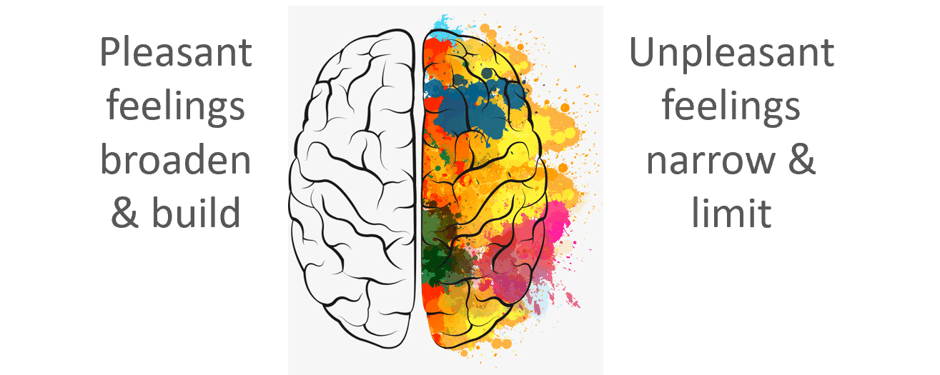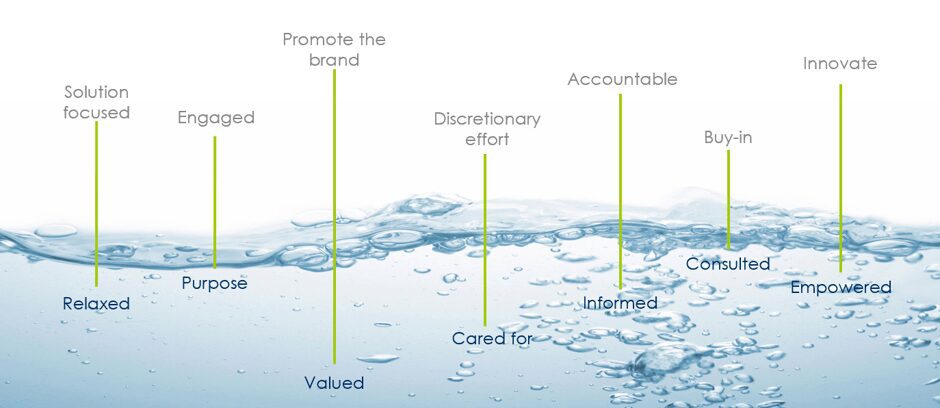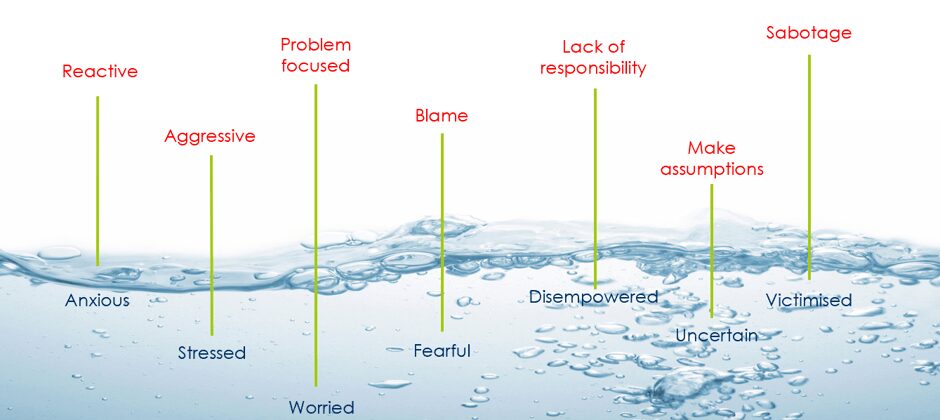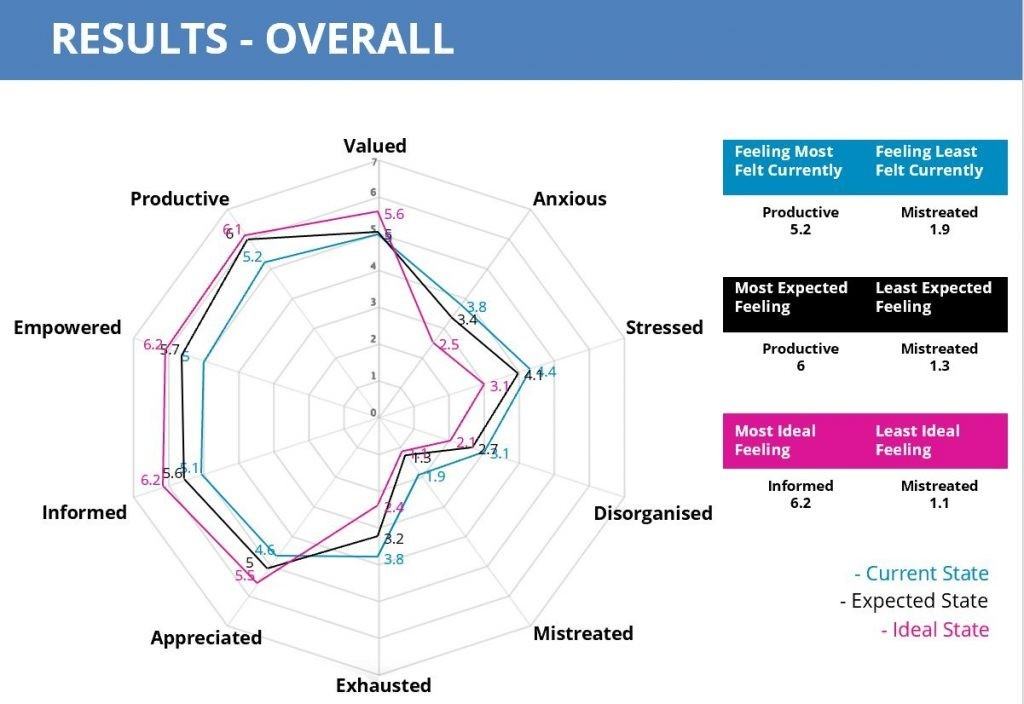Many different factors underpin organisational success. You have to be in the right place, at the right time, with the right product for the right price and with the right people. But even with all of these factors in place, a great workplace culture truly matters.
Why? Because eventually competitors can come along and replicate your best practices, strategies and processes. As Herb Kelleher from Southwest Airlines once famously said “All airlines have aeroplanes.” According to Kelleher, “We’ve never had layoffs. We could have made more money if we furloughed people. But we don’t do that. And we honor them constantly. Our people know that if they are sick, we will take care of them. If there are occasions of grief or joy, we will be there with them. They know that we value them as people, not just cogs in a machine.”
Consequently, culture matters. There are hundreds of different definitions of culture available, however culture is essentially the degree of alignment between strategy and the way employees think and behave.
In 2016, HBR published an article titled Manage Your Emotional Culture. The article talks about and distinguishes between Cognitive Culture and Emotional Culture. It discussed the fact that emotional culture is rarely managed as deliberately as cognitive culture and that it’s often not managed at all. It gives some great examples of how much companies suffer as a result. Employees who should be showing compassion become callous and indifferent. Teams that would benefit from joy and pride instead tolerate a culture of anger. People who lack a healthy amount of fear, act recklessly. The effects can be especially damaging during times of upheaval such as we are experiencing in the current times.
Understanding emotional culture
To understand the concept of emotional intelligence and emotional culture, first we need to look at the underlying science of emotions. Why do we react the way we do, how does others’ behaviour impact us the way it does?
We all experience a wide range of pleasant and unpleasant feelings at work as we interact with colleagues, clients, suppliers and others. These feelings influence our decisions, behaviour and performance.
Pleasant feelings have a ‘broaden and build’ effect causing us to think more broadly, engage more deeply and perform better.

Unpleasant emotions tend to have a ‘narrowing and limiting’ effect, causing us to be more closed-minded, less engaged and productive which ultimately impacts organisational performance. Collectively, these emotions impact the bottom-line positively or negatively.

If we start with positive/pleasant emotions and think about your experiences in the workplace for a moment. When people feel relaxed at work, they tend to be solution focused. When they feel involved, they are more engaged and driven. When they feel cared for by the company, they go above and beyond in the level of discretionary effort they put towards the company. Finally, employees that are empowered are often the hardest working and innovative team members.

Conversely, when people feel anxious, they are more likely to be reactive than proactive. When stressed, we can become defensive. When an employee feels fearful, they can sometimes blame others. Finally, when people feel disempowered, they can assume a lack of responsibility and ownership for their work.
Research shows that people in high performing organisations experience more positive emotions and fewer negative emotions than those in low performing organisations. (Boedker et al. 2011)
So why aren’t more organisations working to focus on understanding how their people are feeling and managing their emotional culture?
Do you know how your employees are feeling right now?
Under normal circumstances, we have ongoing, daily opportunities to have open communication with our people, both formal and informal (when they come in to the office in the morning, around the water cooler, whilst making a cup of tea in the afternoon etc). When working remotely, keeping that open communication is more complex. It is more difficult to truly know how employees are feeling.
The Genos emotional culture survey is the most direct and impactful way to measure emotional culture because the survey measures three distinct things to help identify whether or not emotions experienced need to shift. It measures:
- Experienced emotions
- Expected emotions
- Ideal or desirable levels of emotions

The Emotional Culture Index (ECI) through Genos International is designed to measure three dimensions of emotions at work:
- Current state – How often your people experience certain feelings at work.
- Expected state – How often your people think it’s fair and reasonable to experience these feelings at work given the nature and context of your workplace.
- Ideal state – How often your people think they should ideally experience these feelings in your workplace in order to be effective.
In these uncertain and highly emotional times, rather than spending wasted time and effort guessing how your people are feeling or what they are thinking, the ECI will give a clear and accurate picture of how your people are feeling and how they expect to feel. You can then take appropriate, necessary and accurate action to encourage more positive emotions which will in turn lead to a positive culture. You can also effectively make decisions for your learning and development initiatives as well as the development of your teams and developing a great place to work.
For further information on the ECI or how to manage your team during these times, contact us and we will be delighted to help. https://pinpointingpotential.com/contact/
*Content in collaboration with Genos EU*

